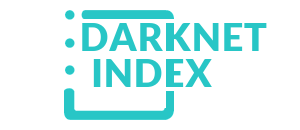The darknet, also known as the dark web, is a concealed section of the internet that's inaccessible via standard search engines. You can only access it using special software, settings, or authorization. This area comprises websites and content that are purposely kept hidden from public view.
Accessing darknet requires using Tor Browser, a special web browser that routes your internet traffic through a global network of relays managed by volunteers. This way, it becomes very difficult to trace which websites you're visiting, and these sites won't know where you are located.
When visiting the dark web, use a secure browser like Tor, do not reveal any of your personal information, and don't open suspicious files or links to stay safe.
The Darknet is often utilized for secure communication, discreet information or file sharing, anonymous research without identity exposure, and occasionally for engaging in illicit activities. It is also recognized for hosting underground black markets(darknet markets), whistleblowing platforms, and discussion boards that champion freedom of speech.
While accessing Darknet Markets themselves is typically not against the law in most places, engaging with illicit goods within them is generally considered a crime. On the other hand, some people might visit Darknet Markets for lawful purposes such as research, journalistic work, or simply to explore online communities. It's essential to know the local laws regarding online activities, and be cautious when using these platforms to avoid any potential issues.
Canadian Man Arrested in Snowflake Data Extortion Scheme
A 25-year-old man from Kitchener, Ontario, Alexander Moucka, also known as Connor Riley Moucka, was arrested on October 30. He allegedly stole and extorted data from over 160 companies using the cloud data service Snowflake. The arrest follows a U.S. provisional arrest warrant. Authorities charged Moucka with a large-scale cybercrime operation that targeted sensitive corporate data.
The extortion campaign began in late 2023. Hackers found that many companies had uploaded vast customer data to Snowflake accounts. Those accounts were protected only by basic usernames and passwords, without multi-factor authentication. Using stolen credentials acquired from darknet markets, the hackers breached data repositories from some of the world’s largest corporations. Victims included major brands such as AT&T, LendingTree, Ticketmaster, Advance Auto Parts, and Neiman Marcus.
AT&T revealed in July 2024 that hackers had stolen personal data from approximately 110 million customers. The company paid $370,000 to a hacker in an attempt to have sensitive phone records deleted. Mandiant, a cybersecurity firm tracking the attacks, reported that the hackers, once inside Snowflake's systems, contacted victim companies. They demanded ransom to prevent the sale or public exposure of the stolen data. The ransom demands were reportedly high. The extorted data from Snowflake victims ran into the terabytes.
Moucka is suspected of using several hacker aliases, including "Judische" and "Waifu," and is said to be a key figure in a cybercrime group called UNC5537. This group operates from both North America and Turkey. It has been linked to multiple high-profile breaches, including a data theft at Santander Bank. The group seems to target many industries, from telecom to managed service providers. They focus on companies that lack strong security measures.
The Snowflake extortions were part of a broader pattern of cybercriminal activity. Moucka, via his hacker persona "Judische," is believed to have caused many high-profile attacks. These include a major data breach at India's largest telecom provider, BSNL. A report from 404 Media says Moucka's group stole data from Verizon. This includes data from its "push-to-talk" services used by U.S. agencies and first responders.
The hacker group UNC5537, led by Moucka and other key figures, has been described as one of the most dangerous cybercrime operations of 2024. Mandiant says the group exploited misconfigured cloud instances at over a hundred organizations. This caused major data loss and widespread extortion. Experts believe that the hackers' use of off-the-shelf tools and common vulnerabilities allowed them to execute their campaign with alarming ease and scale.
Moucka’s arrest has attracted significant attention due to his alleged involvement in multiple high-stakes cybercrimes and his ties to extremist groups. He has a history of harassment and online manipulation. He was charged with online harassment on platforms like Discord, sources close to the investigation say. His hacker personas have also been linked to extremist online communities, including neo-Nazi groups such as the Atomwaffen Division. Moucka has reportedly bragged about his extortion activities. He claimed to have made millions from the Snowflake data thefts.
In addition to Moucka, another member of UNC5537, John Erin Binns, was arrested in Turkey in May 2024. Binns, a 24-year-old American, is linked to previous breaches, including the 2021 T-Mobile hack. Despite his arrest, it is unclear if Binns will be extradited to the U.S. He reportedly gained Turkish citizenship while in custody. This may complicate extradition efforts.
The investigation also uncovered ties between Moucka’s hacking activities and other cybercriminal operations. Notably, Moucka and his associates were active in SIM-swapping and vishing (voice phishing) schemes. These targeted individuals and businesses to steal sensitive information. He has claimed to be involved in various cybercrimes beyond the Snowflake breaches. These include manipulating telecom systems and committing financial fraud.
Moucka's arrest is a major step in the fight against cybercriminals targeting cloud and telecom systems. U.S. and Canadian law enforcement agencies are investigating his role in data breaches and extortion schemes. He is expected to face multiple charges soon. While the exact details of the charges remain sealed, Moucka’s legal team is reportedly seeking legal aid for his defense.
Experts warn that the rise of advanced cybercriminals is a serious risk. Their attacks on critical infrastructure and sensitive data threaten businesses and individuals. The case reminds us to use strong cybersecurity practices. These include multi-factor authentication and strong data protection protocols. They can help prevent such attacks.
